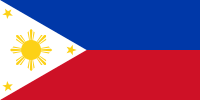
Photo from wikipedia
Detailed climate information in an easily interpretable form is demanded by the general public, as well as by decision-makers on different planning levels. One example is the group of planners… Click to show full abstract
Detailed climate information in an easily interpretable form is demanded by the general public, as well as by decision-makers on different planning levels. One example is the group of planners in the field of sports and tourism. A promising approach is the visualization of climate thresholds in a Climate-Tourism/Transfer-Information Scheme (CTIS) for the prevailing local climate conditions. The presented approach is adaptable to specific destinations and target activities and integrates meteorological, as well as recreational, touristic and specific activity-related parameters and thresholds. All parameters are simplified in terms of factors and combined in one individual graph, the CTIS diagram. The detailed information on local climate can be applied by non-experts like tourists intending to attend a sports event. They are able to prepare for different aspects of the local climate by, e.g., selecting appropriate clothing when planning their stay. The example of the Tokyo 2020 Olympic Games is presented and discussed. Results show that heat stress together with sultriness is likely to occur during the scheduled time of the Olympics, while cold stress will most probably not be relevant.
Journal Title: Atmosphere
Year Published: 2019
Link to full text (if available)
Share on Social Media: Sign Up to like & get
recommendations!